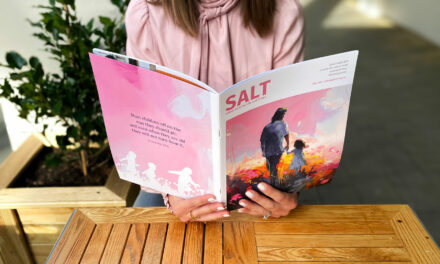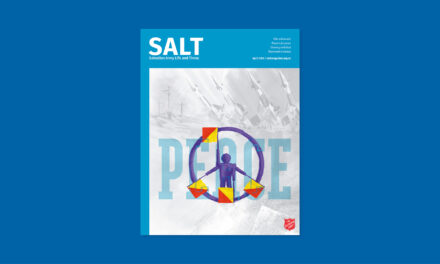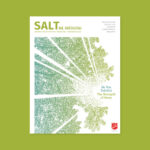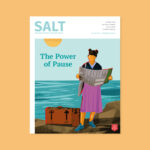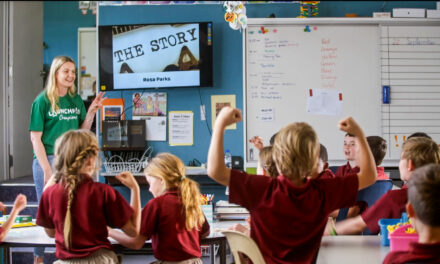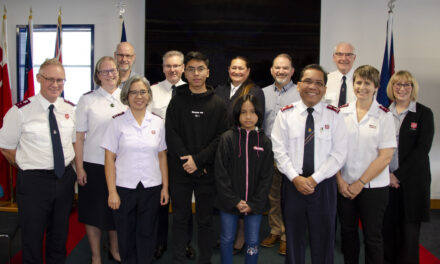
Spotlight on Alcohol Harm at Just Action Conference

More than 100 people took part in a Salvation Army Just Action conference on 23 May that brought together a range of voices to explore alcohol-related issues. David Youngmeyer attended this year’s conference and reports on the day. Photography by Kevin David.
The one-day gathering, ‘Voices for Change: Alcohol Harm and Community Action’, was organised by The Salvation Army’s Social Policy and Parliamentary Unit (SPPU) as part of its Just Action conference series.
Just Action conferences consider issues such as building a more just future in New Zealand and creating a more Bible-based, gospel-centred and just world.
Held at Johnsonville Corps (church) in Wellington, the focus of Voices for Change included identifying the harm alcohol does in our communities and how practical advocacy can make a real difference.
Alcohol-related statistics
Conference speakers included Salvation Army staff, the police, policy experts, community advocates, politicians and participants of the Bridge programme.
Lt-Colonel Lynette Hutson, territorial assistant secretary for Mission overseeing The Salvation Army’s social services, pointed to alcohol as the most used and most harmful drug in our society.
According to 2021/22 figures, nearly one in five adults in New Zealand had a hazardous drinking pattern. On top of this, Māori had a higher rate of drinking, while alcohol use among Pacific people was increasing.
‘We have this quite disconnected view of how alcohol sits in our society,’ said Lynette, who noted that alcohol is viewed as fun and fine in some places, while at the same time causing immense harm in others.
Author Lotta Dann, who has written three books on alcohol, shared some of her personal experiences with addiction and recovery. At age 17 she was drunk on gin when kicked out of her school prizegiving for being disruptive, while in her 30s she was binging almost every night, waking up most mornings feeling utterly miserable and lost.
Sober now for more than a decade, Lotta said there are a lot of people for whom the struggles with alcohol are hidden. ‘There comes a point where we need to stop just pulling people out of the river. We need to go upstream and find out why they’re falling in.’
Lotta said the environment we live in perpetuates myths about alcohol, along with the availability, price and marketing of alcohol, which is an addictive drug.
Alcohol’s contribution to community harm
Inspector Brett Callander, the manager of Community Prevention Partnerships for the New Zealand Police and attends Miramar Corps, said alcohol is a huge contributor to suicides, traffic fatalities, binge drinking and family harm. Some 80 percent of family harm incidents involve alcohol in some way.
Bars and pubs sell 13 percent of alcohol consumed in New Zealand each year, with the majority sold by off-licences such as bottle shops, supermarkets and online. This means most people are drinking where there is no one to monitor their consumption.
‘Harm is happening every day and it’s happening because of alcohol,’ said Brett, who highlighted the value of that harm to society as pushing on $8 billion.

Politicians’ views of alcohol use and abuse
With the General Election in October this year, Members of Parliament from four political parties took to the stage for a lively panel discussion. All were supportive of The Salvation Army’s work in the community including around the provision of alcohol addiction treatment services.
Louise Upston (MP for Taupō, National) said that lots of Kiwi use alcohol safely and enjoyably, while excessive use of alcohol is creating significant harm. Harm reduction was important, but there needed to be a balance. ‘How do we target the measures to where the harm is and how to prevent that harm as opposed to having blanket approaches?’
Nicole McKee (List MP, ACT) also spoke of the need to find a balance with alcohol, emphasising that she took a pragmatic view. Nicole said that while everyone acknowledges alcohol can cause harm in our communities, the flipside is that the sale of alcohol can help support communities. She encouraged people to make submissions on alcohol-related legislation so that their views would be heard.
Chlöe Swarbrick (MP for Auckland Central, Greens) reflected on her Alcohol Harm Minimisation Bill, which reached Parliament but failed at its first reading in April. The Bill had sought to empower communities to be heard in local alcohol licensing decisions and protect them from the harms associated with alcohol sponsorship of sport.
Glen Bennett (MP for New Plymouth, Labour) said the Government was progressing its own Sale and Supply of Alcohol (Community Participation) Amendment Bill, which looks at things like the regulation of alcohol pricing. ‘When you can buy alcohol cheaper than you can buy other products there’s an issue,’ said Glen.
Advocacy and support
In the final section of the conference, Ana Ika, an analyst with SPPU, spoke about The Salvation Army’s local alcohol advocacy toolkit, which is a guide for those in The Salvation Army who challenge alcohol licence applications in their local area. The toolkit was created in 2021 to fill the need for a practical resource to guide people through what can be a complicated process.


